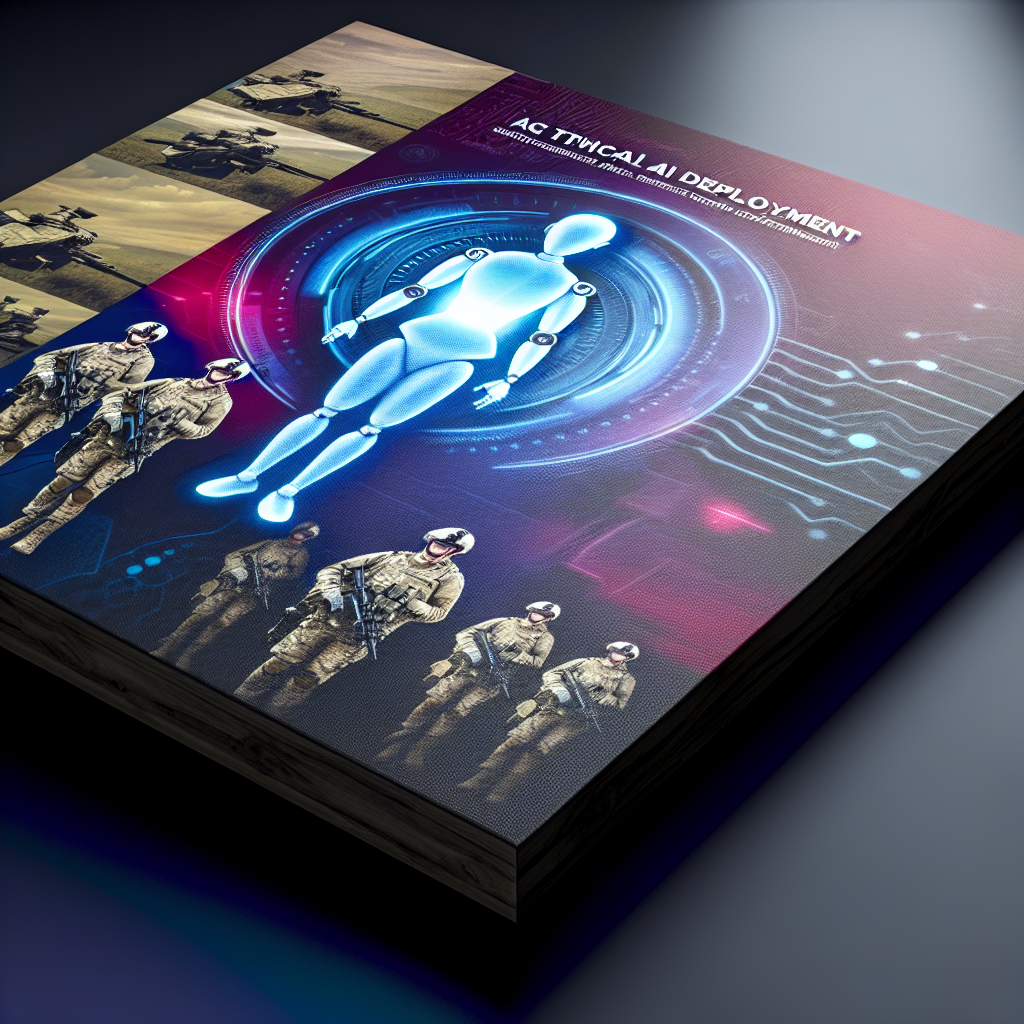AI Governance Framework for Defense Agencies: A Comprehensive Guide
Estimated reading time: 7 minutes
Key Takeaways
- AI governance is critical for defense agencies deploying AI systems.
- Robust governance frameworks address ethical, legal, and security concerns.
- Key components include accountability structures, risk assessment protocols, ethical guidelines, and audit mechanisms.
- Implementing AI governance enhances security, operational effectiveness, compliance, and public trust.
- Defense agencies face challenges but can overcome them with modular frameworks, explainability investments, and a strong reporting culture.
Table of Contents
- Introduction
- Understanding AI Governance
- AI Governance Framework for Defense Agencies
- Governance Controls for Open DAGIR Environment
- Integration of AI Governance into Defense Operations
- Benefits of Robust AI Governance in Defense
- Challenges and Solutions in AI Governance for Defense
- Future Trends in AI Governance for Defense Agencies
- Conclusion
- Frequently Asked Questions
Introduction
AI governance encompasses the frameworks, policies, and practices that guide the responsible, ethical, and safe development and usage of AI systems. As defense agencies increasingly rely on artificial intelligence for mission-critical operations, the need for robust governance frameworks has never been more pressing. From managing potential biases to preventing security breaches and ensuring ethical deployment, AI governance serves as the foundation for responsible AI utilization.
Understanding AI Governance
At its core, AI governance is built on several fundamental principles that ensure responsible AI deployment:
Ethical Standards
- Protection of human rights and safety
- Alignment with human-centric values
- Prevention of harmful or discriminatory outcomes
Compliance and Regulation
- Adherence to national and international laws
- Compliance with industry standards
- Regular auditing and reporting
Accountability and Oversight
- Clear chain of responsibility
- Meaningful human supervision
- Transparent decision-making processes
Security and Privacy
- Data protection measures
- Cybersecurity protocols
- Access control systems
Best practices for implementing AI governance include:
- Multi-stakeholder engagement
- Transparent communication
- Regular framework updates
- Continuous monitoring and assessment
AI Governance Framework for Defense Agencies
Defense agencies require specialized AI governance frameworks that address unique challenges and requirements. These frameworks must balance operational effectiveness with ethical considerations and security demands.
Key Components:
- Accountability Structures
- Clear reporting lines
- Defined roles and responsibilities
- Decision-making protocols
- Risk Assessment Protocols
- Threat analysis
- Impact evaluation
- Mitigation strategies
- Ethical Guidelines
- Rules of engagement
- Autonomous systems limitations
- Human oversight requirements
- Audit Mechanisms
- Performance tracking
- Decision logging
- Regular compliance checks
Governance Controls for Open DAGIR Environment
The Open DAGIR (Distributed AI Governance, Integration, and Resilience) environment requires specific governance controls to ensure secure and effective operation:
Access Control
- Multi-factor authentication
- Role-based permissions
- Activity monitoring
Data Governance
- Data quality standards
- Privacy protection
- Information flow control
Transparency Measures
- Audit trails
- Regular reporting
- Stakeholder communications
Integration of AI Governance into Defense Operations
Successfully embedding AI governance into defense operations requires:
Policy Alignment
- Integration with existing protocols
- Updated standard operating procedures
- Clear implementation guidelines
Technological Implementation
- Monitoring tools
- Explainability dashboards
- Performance tracking systems
Benefits of Robust AI Governance in Defense
Implementing comprehensive AI governance frameworks offers numerous advantages:
- Enhanced Security
- Reduced vulnerability to attacks
- Better threat detection
- Improved response capabilities
- Operational Effectiveness
- Streamlined processes
- Reduced errors
- Faster decision-making
- Regulatory Compliance
- Legal alignment
- Standard adherence
- Risk mitigation
- Public Trust
- Transparency
- Accountability
- Ethical alignment
Challenges and Solutions in AI Governance for Defense
Common Challenges:
- System complexity
- Transparency issues
- Evolving threats
- Regulatory changes
Solutions:
- Modular Frameworks
- Adaptable structures
- Scalable implementations
- Regular updates
- Explainability Investments
- AI interpretation tools
- Decision tracking systems
- Performance analytics
- Reporting Culture
- Open communication
- Incident documentation
- Lesson sharing
Future Trends in AI Governance for Defense Agencies
Emerging developments include:
- Real-time governance systems
- International standards alignment
- Supply chain transparency
- Automated compliance checking
- Enhanced stakeholder engagement
The field continues to evolve with:
- New technological capabilities
- Advanced monitoring tools
- Improved security measures
- Enhanced collaboration platforms
Conclusion
Effective AI governance is not just a regulatory requirement but a strategic necessity for defense agencies. As AI systems become more sophisticated and widespread, robust governance frameworks ensure responsible, secure, and ethical deployment while maintaining public trust and operational effectiveness.
Defense agencies must prioritize the development and implementation of comprehensive AI governance frameworks to navigate the complex landscape of artificial intelligence successfully. By focusing on strong governance principles, organizations can harness AI’s potential while minimizing risks and ensuring alignment with ethical standards and regulatory requirements.
Frequently Asked Questions
What is AI governance in the context of defense agencies?
AI governance in defense agencies refers to the set of policies, frameworks, and practices that ensure the ethical, responsible, and secure use of AI systems within defense operations.
Why is AI governance important for defense agencies?
AI governance is crucial for defense agencies to minimize risks associated with AI deployment, such as ethical concerns, security vulnerabilities, and compliance issues, thereby enhancing operational effectiveness and public trust.
What are the key components of an AI governance framework?
Key components include accountability structures, risk assessment protocols, ethical guidelines, audit mechanisms, and continuous monitoring and evaluation processes.

